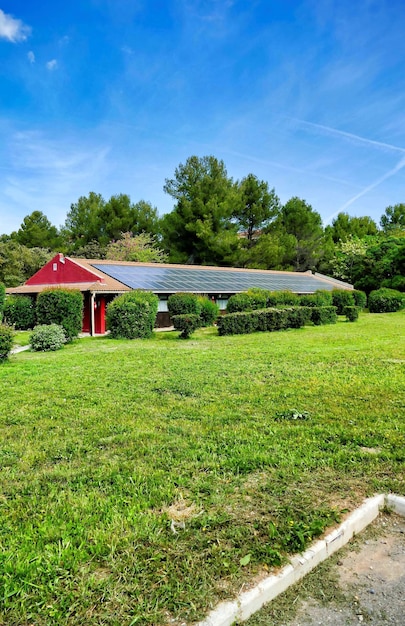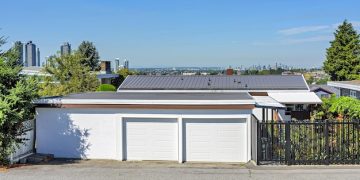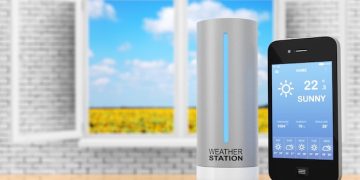Unlock Savings: Local Resources for Home Energy Efficiency in the US

Maximize Your Savings: Discover Local Resources for Energy Efficiency Upgrades in Your Home by exploring various rebates, incentives, and programs available in the US to help homeowners reduce energy consumption and lower utility bills.
Are you looking to make your home more energy-efficient while saving money? Maximize Your Savings: Discover Local Resources for Energy Efficiency Upgrades in Your Home by tapping into a wealth of rebates, incentives, and specialized programs available right in your community.
Understanding Energy Efficiency Programs in Your Area
Embarking on the journey to energy efficiency can feel daunting, but understanding the landscape of local programs makes it significantly easier. These programs are designed to encourage homeowners like you to invest in upgrades that not only benefit your wallet but also contribute to a greener environment.
Local governments, utility companies, and non-profit organizations often collaborate to offer a variety of initiatives tailored to the specific needs and climates of different regions.

Types of Programs Available
Knowing the types of programs available helps you identify the best options for your home. Here are a few common categories:
- Rebates: These offer cash back on qualifying energy-efficient purchases, such as appliances, insulation, or windows.
- Incentives: Often provided by utility companies, these can include discounts on energy audits, installation services, or equipment.
- Loan Programs: Low-interest loans or financing options to help cover the upfront costs of energy efficiency projects.
- Grants: Typically offered to low-income households, grants provide direct financial assistance for energy-efficient upgrades.
By understanding these different program types, you can better navigate the options available in your area and find the support that best aligns with your needs and budget.
In conclusion, local energy efficiency programs are valuable resources that can significantly aid homeowners in making sustainable choices. By taking the time to understand the available options, you can make informed decisions that benefit both your finances and the environment.
How to Find Local Energy Efficiency Resources
Discovering the specific energy efficiency resources available in your area requires a bit of research, but the payoff is well worth the effort. Many resources are readily available online, making the process straightforward and accessible.
Start by checking with your local utility company, as they are often the primary providers of rebates and incentives. Additionally, local government websites and non-profit organizations can offer valuable information and assistance.
Online Databases and Search Tools
Utilize online databases and search tools to streamline your search for energy efficiency resources. Here are some reliable options:
- DSIRE (Database of State Incentives for Renewables & Efficiency): This comprehensive database offers information on state, local, utility, and federal incentives and policies that support renewable energy and energy efficiency.
- Energy Saver Website (energy.gov): Hosted by the U.S. Department of Energy, this website provides a variety of tools and resources to help you identify energy-saving opportunities and incentives.
- Local Government Websites: Many city and county websites have dedicated sections on sustainability and energy efficiency, including links to available programs and resources.
- Non-Profit Organizations: Organizations like the American Council for an Energy-Efficient Economy (ACEEE) provide valuable research and information on energy efficiency policies and programs.
These online tools can help you quickly identify programs and resources that are relevant to your specific location and needs, saving you time and effort.

In conclusion, finding local energy efficiency resources is made easier through a combination of online databases, utility company websites, and community outreach programs. By utilizing these resources, homeowners can access valuable support and incentives to improve their home’s energy performance and save money.
Navigating Rebates and Incentives for Energy-Efficient Appliances
Upgrading to energy-efficient appliances is a smart way to lower your energy bills and reduce your environmental footprint. Navigating the rebates and incentives available for these appliances can further enhance your savings and make the investment even more worthwhile.
Energy-efficient appliances, such as refrigerators, washing machines, and air conditioners, consume less energy than their standard counterparts, leading to long-term cost savings. To encourage homeowners to invest in these appliances, many programs offer rebates and incentives.
Understanding Eligibility Requirements
Before purchasing an energy-efficient appliance, it’s essential to understand the eligibility requirements for the rebates and incentives you intend to claim. Here are some common factors to consider:
- ENERGY STAR Certification: Many rebates and incentives require that the appliance be ENERGY STAR certified, meaning it meets specific energy efficiency standards set by the Environmental Protection Agency (EPA).
- Product Specifications: Check the specific energy efficiency ratings and specifications required by the program. For example, some rebates may only apply to appliances with a certain energy factor or water usage rate.
- Purchase Location: Some programs may require that you purchase the appliance from a participating retailer or within a specific geographic area.
- Application Process: Understand the steps involved in applying for the rebate or incentive, including any required documentation, deadlines, and submission methods.
Pay close attention to the terms and conditions to ensure that you meet all the necessary criteria and can successfully claim the savings.
In summary, navigating rebates and incentives for energy-efficient appliances involves understanding the available programs, researching eligible appliances, and carefully following the application process. By taking these steps, you can maximize your savings and enjoy the benefits of a more energy-efficient home.
Home Energy Audits: Identifying Opportunities for Improvement
A home energy audit is a comprehensive assessment of your home’s energy performance. It helps identify areas where energy is being wasted and provides recommendations for improvements that can lead to significant energy savings.
Professional energy auditors use specialized equipment and techniques to evaluate various aspects of your home, including insulation levels, air leakage, heating and cooling systems, and lighting.
Benefits of a Home Energy Audit
There are numerous benefits to conducting a home energy audit:
- Identify Energy Waste: An audit pinpoints areas where your home is losing energy, such as drafts, inadequate insulation, or inefficient appliances.
- Prioritize Improvements: Based on the audit results, you can prioritize energy efficiency upgrades that offer the most significant return on investment.
- Lower Utility Bills: By addressing the identified issues, you can reduce your energy consumption and lower your monthly utility bills.
- Increase Home Comfort: Energy efficiency improvements can make your home more comfortable year-round by reducing drafts and maintaining consistent temperatures.
- Improve Home Value: Energy-efficient homes are often more attractive to buyers and can command a higher resale value.
A home energy audit provides valuable insights that empower you to make informed decisions about improving your home’s energy efficiency.
In conclusion, home energy audits are an invaluable tool for identifying energy waste and opportunities for improvement. By investing in an audit and implementing the recommended upgrades, you can significantly reduce your energy consumption, lower your utility bills, and create a more comfortable and sustainable home.
DIY vs. Professional Energy Efficiency Upgrades
When it comes to enhancing your home’s energy efficiency, you have the option of tackling projects yourself (DIY) or hiring professionals. Each approach has its own set of advantages and considerations.
DIY energy efficiency upgrades can be cost-effective and empowering, allowing you to take control of your home improvements. However, they may require more time, effort, and technical knowledge. Professional upgrades, on the other hand, offer expertise, precision, and often come with warranties, but they typically involve higher upfront costs.
DIY Projects You Can Tackle
Many energy efficiency upgrades are suitable for DIY enthusiasts. Here are a few examples:
In conclusion, the decision between DIY and professional energy efficiency upgrades depends on your skills, budget, and comfort level. By carefully weighing the pros and cons of each approach, you can choose the path that best suits your needs and achieve your energy efficiency goals.
Financing Options for Energy Efficiency Projects
Funding energy efficiency projects can be a barrier for some homeowners. Fortunately, various financing options are available to help make these upgrades more affordable.
Explore different loan types and find the best fit for your budget and savings goals.
- Personal Loans: Unsecured loans from banks or credit unions that you can use for home improvements.
- Home Equity Loans/Lines of Credit: Borrow against the equity in your home for potentially lower interest rates.
- Energy-Efficient Mortgages: Finance energy upgrades as part of your home purchase or refinance.
- State and Local Programs: Check for government-sponsored loan or grant programs in your area.
By understanding these different financing options, you can make informed decisions aligning with your financial situation and energy efficiency goals.
In summary, understanding the various financing options available for energy efficiency projects can help homeowners overcome financial barriers and make their homes more sustainable. By exploring these options and choosing the one that best suits their needs, homeowners can achieve their energy efficiency goals without breaking the bank.
| Key Point | Brief Description |
|---|---|
| 💡Local Programs | Discover rebates, incentives, and specialized programs in your community. |
| 💰Rebates & Incentives | Cash back or discounts on energy-efficient appliances and upgrades. |
| 🔎Energy Audits | Assess your home’s energy performance for improvement opportunities. |
| 🛠️DIY vs. Pro | Choose between DIY projects and professional services based on your skills and budget. |
Frequently Asked Questions
▼
Local resources include utility companies, local government programs, and non-profit organizations offering rebates, incentives, and grants for energy-efficient upgrades.
▼
Check the ENERGY STAR website, the DSIRE database, and your local utility company’s website for available rebates on energy-efficient appliances.
▼
A home energy audit assesses your home’s energy performance, identifying areas of waste. It’s beneficial for lowering utility bills and improving comfort and home value.
▼
DIY is cost-effective for simple tasks, while professionals offer expertise and warranties for complex upgrades like insulation or HVAC systems.
▼
Financing options include personal loans, home equity loans, energy-efficient mortgages, and state/local programs offering loans and grants to homeowners.
Conclusion
In conclusion, making your home more energy efficient is a worthwhile endeavor. By leveraging local resources, understanding available rebates and incentives, and choosing the right financing options, you can maximize your savings while creating a more comfortable and sustainable living environment. Take the first step today to unlock the benefits of energy efficiency in your home.





